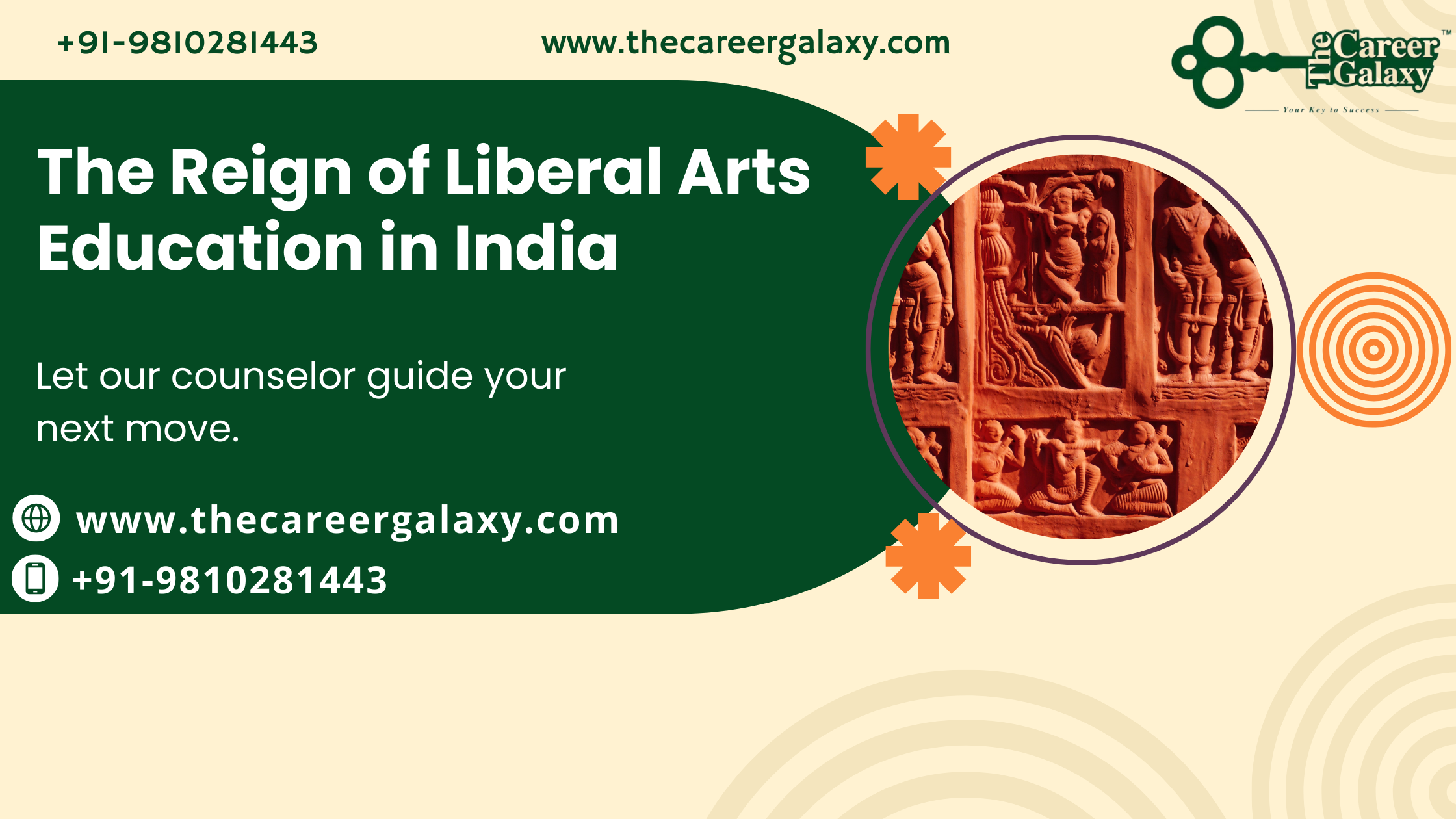
The Reign of Liberal Arts Education in India
The Reign of Liberal Arts Education in India
India is witnessing a shift in how education is perceived, with Liberal Arts gradually carving out its space in the academic landscape. For decades, the nation has emphasized professional degrees like engineering, medicine, and law. But as the workforce diversifies and new industries emerge, the demand for holistic, interdisciplinary education has soared. Liberal Arts education is not just an alternative; it’s a gateway to lucrative and dynamic career paths.
In this blog, we’ll explore what Liberal Arts education is, why it’s essential, its benefits, program structures, admission processes, and career opportunities. By the end, you’ll see why a Liberal Arts degree might just be the key to a fulfilling and flexible future.
What Is Liberal Arts Education?
At its core, Liberal Arts education focuses on fostering critical thinking, creativity, and adaptability by combining a wide range of disciplines. Students learn to connect the dots between humanities, social sciences, natural sciences, and mathematics, ensuring a well-rounded education.
Key Characteristics
- Interdisciplinary Learning: Courses in subjects like Philosophy, Political Science, Psychology, Computer Science, and Environmental Studies.
- Skill Development: Focus on communication, problem-solving, and analytical skills applicable in various industries.
- Global Perspectives: Encourages students to think beyond geographical and cultural boundaries.
Noteworthy Liberal Arts institutions in India, such as Ashoka University and FLAME University, have been leading this educational transformation, producing graduates who are equipped to solve complex, real-world problems.
Why Do We Need Liberal Arts Education?
The traditional focus on technical education was ideal for a pre-digital era. However, as industries evolve, professionals with skills beyond technical competence are essential. Liberal Arts prepares students to adapt, innovate, and lead in a rapidly changing world.
For example, a market researcher needs not only statistical skills but also an understanding of consumer behavior and cultural trends. Similarly, a social media manager excels through effective communication and creativity alongside platform expertise.
Key Reasons for Its Relevance:
- Resilience in the Job Market: Industries are increasingly leaning toward lateral thinking and problem-solving, skills a Liberal Arts education sharpens.
- Humanistic Innovation: Real solutions to pressing challenges like climate change or ethical AI development require interdisciplinary approaches.
For organizations hiring adjunct roles like a human resources specialist or fundraiser, a Liberal Arts graduate often fits the bill with their refined soft skills and adaptability.
Advantages of Getting a Liberal Arts Degree
Students pursuing a Liberal Arts degree stand to gain a lot. Here are some compelling benefits:
1. Holistic Knowledge
The diverse curriculum ensures exposure to multiple domains. For example:
- A mediator develops negotiation skills through Political Science and Psychology.
- A graphic designer refines their creativity by exploring Art History and Media Studies.
2. Sharpened Critical Thinking
Students learn to assess situations from various angles, enhancing their problem-solving abilities.
3. Global Career Opportunities
Liberal Arts careers span industries, and professions like public relations specialists and event planners thrive on the versatile skill sets cultivated.
4. Personal Growth
The self-reflective nature of Liberal Arts programs fosters deeper self-awareness and a desire for continued learning.
A real-world example? Alumni from the Young India Fellowship have gone on to become policy analysts and social entrepreneurs, showcasing the breadth of opportunities available.
Confused?
Liberal Arts Education best for you
Structure of Liberal Arts Programs
Most Liberal Arts institutions in India design their programs to blend academic rigor with experiential learning.
| Program Element | Description |
|---|---|
| Foundation Courses | Students explore various disciplines such as Sociology, Philosophy, and Biology. |
| Major/Minor Specializations | Example majors include Psychology, Economics, and Literature. |
| Hands-on Experience | Opportunities like internships, group projects, and study-abroad programs. |
| Capstone Project | Students complete an interdisciplinary project applying their knowledge to real-world problems. |
This structure ensures a balance between breadth and depth, equipping graduates with versatile skill sets.
Liberal Arts Admission Process
The admission process may vary between institutions, but generally includes the following:
- Application Form:
Complete an online application highlighting your academic history, co-curricular achievements, and a statement of purpose.
- Entrance Tests:
Some institutions require aptitude tests like FLAME Entrance Aptitude Test (FEAT) or Ashoka’s Ashoka Aptitude Test (AAT).
- Interviews:
Shortlisted candidates participate in personal interviews to assess compatibility with the program.
Pro tip for aspiring students: Highlight your curiosity, creativity, and collaborative skills during the application process.
Career Prospects After Liberal Arts
One of the biggest misconceptions is that Liberal Arts graduates lack career opportunities. The truth? Graduates are highly sought after across a range of industries.
Here’s a glimpse at where your Liberal Arts degree can take you:
- Corporate Roles:
Human resources specialist, public relations specialist, social media manager.
- Creative Industries:
Graphic designer, event planner.
- Social Impact Careers:
Substance abuse counselor, fundraiser.
- Global Opportunities:
Translator, mediator, market researcher.
Real-World Success Stories
- Ashoka University Alumni:
Many have stepped into policy-making, media, and academia.
- FLAME University Graduates:
Known for breaking into marketing, consulting, and entrepreneurship.
- Young India Fellows:
Often emerge as leaders in sectors ranging from non-profits to corporate enterprises.
Liberal Arts opens doors far beyond conventional career paths. It equips students for fields that don’t even exist yet!
The Next Step for Aspiring Liberal Arts Students
Liberal Arts education is more than a degree; it’s an experience that shapes thinkers, leaders, and innovators. If you’re ready to explore this exciting world, we’re here to help.
Contact The Career Galaxy to learn more about applying to top Liberal Arts programs, choosing specializations, and planning your career trajectory.
Take the first step toward a fulfilling tomorrow. Your future starts now!
